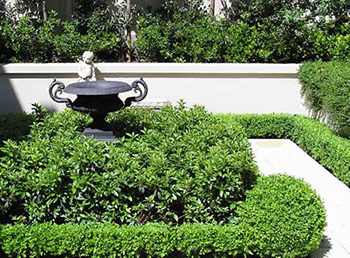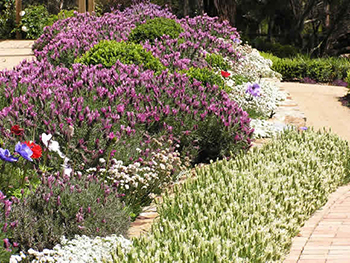Gardening facts and fiction

What does a garden mean?
Ha! Extra work on the weekends, mowing, weeding, spending your generally unavailable time, all that effort...
It’s true. Gardens, for many, are time consuming and take plenty of work to keep tidy. But there’s the catch – we do work in our gardens (or someone else does) because we prefer them when they are tidy.
We sit back and get a feeling of appreciation when they’ve been brought under control, after they’ve been mowed, edges trimmed, paths cleared and growth pruned.
Work put in equals the satisfaction we get out. But hold on, how can we enjoy something that we don’t like? And is that all that gardens mean? A pot on a balcony or a cactus on a windowsill is not a garden, but still contains the essence of gardening.
The want to grow, to nurture, to appreciate a living organism, a connection and ability to be involved with nature, even in the smallest of frames.

From the smallest to broad scale gardens, any cultivation we undertake seems to provide reward. For who? For what? For the soul? Very possibly. An intangible reward.
Watering a garden on a summer night after work – particularly with an appropriate summer beverage – provides many with a sense of relief from the working day.
A personal moment to slow down to a mental space that becomes relaxing. Stress releasing. Zoning out.
But at that moment, what are we doing? We aren’t even concentrating on ourselves.
To plant and water the pots, vegies or garden is giving life – the greatest gift of all – and we do it passively, without being asked, simply by recognising our garden’s need.
To embrace nature is to feed our own soul; by performing an unselfish, yet personally intimate act to continue life for another.
An appreciation of nature and the living force or spirit – call it what you will – must surely be more powerful and rewarding than any experience our own excessive human egos can provide us.

Our smug satisfaction in science’s ability to manipulate, adulterate, to improve on what is already provided must surely be one of mankind’s greatest flaws.
Yet, to plant a few seeds and give them life, to nurture and appreciate them, such a basic act becomes immediately fascinating and humbling.
As gardeners we are in awe of what nature can do and be, from destructive extremes to beauty incomparable. A mirror image of what we as humans are also capable of being.
When we leave and return to the confines and comfort of our homes, the first and last step into the wide and wild world around us is, for many, through the security and intimacy of the garden around us.
A vestige of our personal domain. Even the scruffiest, most unkempt garden offers its own solace and familiarity. The cave of the ancients. Recognition and acceptance. Safety.
But can a garden offer more? Recently I worked on two very personal gardens. Not large, not designed, not even fancy, but both very, very special, appreciated and loved by their owners.
In one was a camellia, a gift planted in memory to a lost husband. In another, a rose planted at the time of its owner’s first born – 45 years ago.
Special cuttings of colour or species, or potted gifts from friends, some passed away, but still alive in memory and representation.
Gardens full of times, people, memories and places. How privileged to be involved in such gardens and to have been shown yet another great example of what gardens can truly mean.
